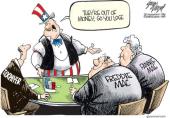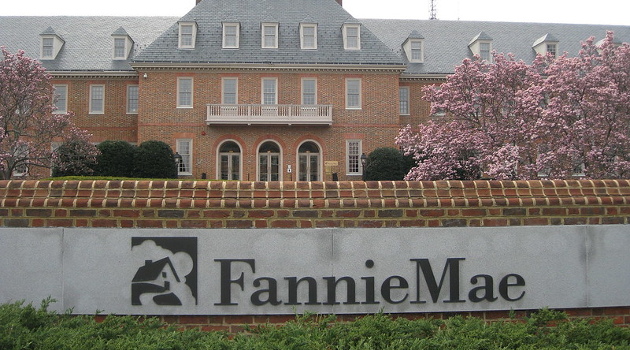I have Republican friends who don’t trust Michael Bloomberg because he switched parties and Democratic friends who don’t trust him for the same reason. I tell all of them that it’s more important to focus on his policy agenda rather than his partisan identification.
Though that’s not a happy topic, at least from a libertarian perspective. For instance, I recently criticized his very bad tax plan.
And when he was mayor, I dinged him for his regressive views on the 2nd Amendment and his nanny-state approach to lifestyle choices.
 Today, let’s consider his view on housing finance, which has generated controversy since video has surfaced with Bloomberg stating that the financial system got in trouble because anti-redlining policies required banks to make loans to customers in poor neighborhoods.
Today, let’s consider his view on housing finance, which has generated controversy since video has surfaced with Bloomberg stating that the financial system got in trouble because anti-redlining policies required banks to make loans to customers in poor neighborhoods.
Other candidates, such as Elizabeth Warren, argue that this makes Bloomberg a supporter of racist practices (with the obvious implication that he might actually be a racist).
I’m reluctant to make such accusations, especially when I tracked down this longer version of the video and discovered that Bloomberg merely listed a bunch of policies that contributed to the housing bubble and financial crisis.
Redlining was the first thing he mentioned, but he also cites the Federal Reserve (dispenser of easy money) and Fannie Mae and Freddie Mac (dispensers of housing subsidies).
In the latter part of his answer, he focused on “securitization,” which is what happens when mortgages are bundled together and sold to investors (as “mortgage-backed securities”).
Much of what he says isn’t controversial.
But I want to point out a sin of omission.
Bloomberg mentioned Fannie Mae and Freddie Mac, but only in passing. This is troubling because these two government-created entities, as explained in this video, deserve much of the blame for both the bubble and the subsequent crisis.
Yes, the Federal Reserve also deserves criticism for flooding the economy with too much liquidity.
But it was the government’s housing intervention, specifically Fannie Mae and Freddie Mac, that channeled much of that excess liquidity into the housing market.
 Simply stated, financial institutions were willing to make sloppy loans because they knew those mortgages could be bundled into securities and sold to Fannie Mae and Freddie Mac.
Simply stated, financial institutions were willing to make sloppy loans because they knew those mortgages could be bundled into securities and sold to Fannie Mae and Freddie Mac.
Though many banks were steered into also investing in mortgage-backed securities thanks to other misguided government regulations.
P.S. The wise approach, needless to say, is to shut down Fannie Mae and Freddie Mac as part of an agenda to end government intervention in the housing sector.
P.P.S. Obama was bad on this issue and Trump is bad on this issue, so I won’t be surprised if Bloomberg also is bad on this issue if he gets to the White House.
———
Image credit: futureatlas.com | CC BY 2.0.

